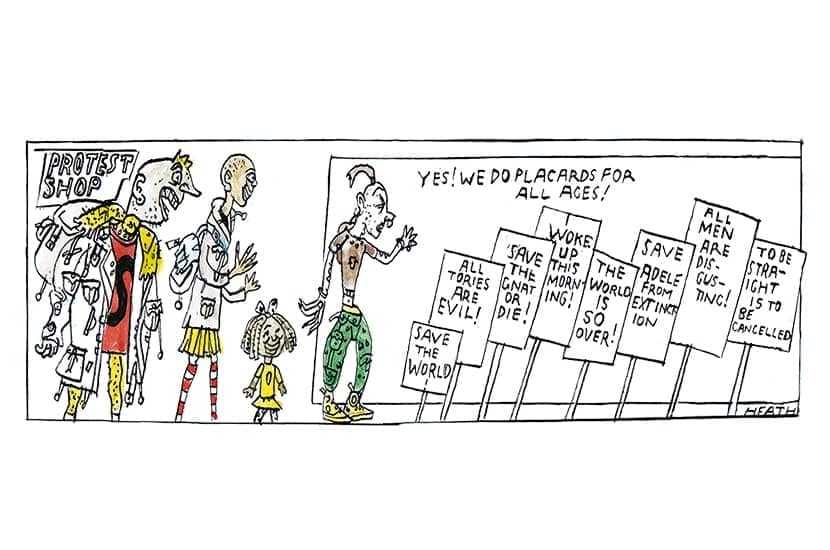Home
The UK terror threat level was raised to severe after a taxi exploded and burst into flames just before 11 a.m. on Remembrance Sunday outside Liverpool Women’s Hospital, killing the passenger. He was Emad Al Swealmeen, 32, a failed asylum-seeker from the Middle East, who had converted from Islam, and was confirmed in 2017 at Liverpool Anglican Cathedral nearby. He had previously been sectioned for six months under the Mental Health Act because of his behaviour with a knife. The detonator seemed to have gone off but not the bomb. The taxi driver, whose wounds required hospital treatment, was praised for his courage. The Countess of Avon, widow of the former prime minister Anthony Eden, died aged 101.
In the seven days up to the beginning of this week, 1,092 people had died with coronavirus, bringing the total of deaths (within 28 days of testing positive) to 142,835. (In the previous week deaths had numbered 1,185.) Numbers remaining in hospital fell from more than 9,000 to about 8,600. By the beginning of the week the percentage of people in the United Kingdom to have had a first vaccination was 87.9, two doses 80, three 21.9. The number of obese children had increased from 10 per cent to 14 per cent after a year of lockdown. Commenting on a rise in Covid cases on the Continent, Boris Johnson, the Prime Minister, said: ‘We don’t yet know the extent to which this new wave will wash up on our shores.’ On one day, about 1,185 migrants crossed the Channel in small boats, the highest number yet; the total this year reached 23,500, compared with 8,400 in 2020. France dismantled a camp near Dunkirk occupied by 1,500 migrants and arrested 35 people-smugglers.
India and China reduced the effect of the COP26 meeting in Glasgow by changing an agreement to ‘phase out’ coal to ‘phase down’ coal. Alok Sharma, the president of the meeting, wept as he said: ‘We got it over the line.’ The annual rate of inflation rose to 4.2 per cent, higher than expected, largely driven by energy prices. Employment vacancies rose to 1.17 million in October — almost 400,000 higher than before the pandemic. Royal Dutch Shell was to move its headquarters and tax base to Britain; the Dutch government said it was ‘unpleasantly surprised’. In a letter to the Speaker, Boris Johnson set out plans to ban MPs from working as paid consultants. Caroline Nokes MP, the chair of the Women and Equalities Committee, said that Stanley Johnson, the Prime Minister’s father, had smacked her on the bottom in 2003; he said he had ‘no recollection of Caroline Nokes at all’.
Abroad
The EU accused Belarus of pushing migrants towards its eastern borders. Thousands, mostly from Iraq, Syria and Yemen, had gathered just inside Belarus. President Emmanuel Macron told President Vladimir Putin of Russia that France was ready to defend the territorial integrity of Ukraine, on whose border Russian troops had massed. Germany’s energy regulator suspended the approval process for the Nord Stream 2 gas pipeline from Russia; gas prices rose. Libya’s military prosecutor asked its electoral commission not to allow Saif al-Islam Gaddafi, the son of the late ruler, to stand next month for president. F.W. de Klerk, who shared a Nobel peace prize with Nelson Mandela for negotiating an end to apartheid, died aged 85. A new gang fight left 68 dead in the same jail in the city of Guayaquil, Ecuador, where 119 men were killed in September.
Some European countries saw an increase in Covid cases. The total in the world reported to have died with coronavirus reached 5,110,545 by the beginning of the week. There were protests in Holland against a three-week curfew on non-essential shops and on prostitutes. In Austria unvaccinated people would be allowed to leave home only for limited reasons. In Shangrao in the province of Jiangxi, China, health workers killed a dog with a crowbar whose owner was absent because she was in a quarantine hotel that wouldn’t accept pets.
President Xi Jinping, the ruler of China, told President Joe Biden of the United States in a virtual meeting that encouraging Taiwanese independence would be ‘playing with fire’. Warships from Bahrain, the UAE, Israel and America held a joint exercise in the Red Sea out of fear of Iran. Aung San Suu Kyi, not seen since a coup in Burma in February, had ‘election fraud’ added to charges against her. Wilbur Smith, whose adventure novels sold 140 million copies, died aged 88.






Comments